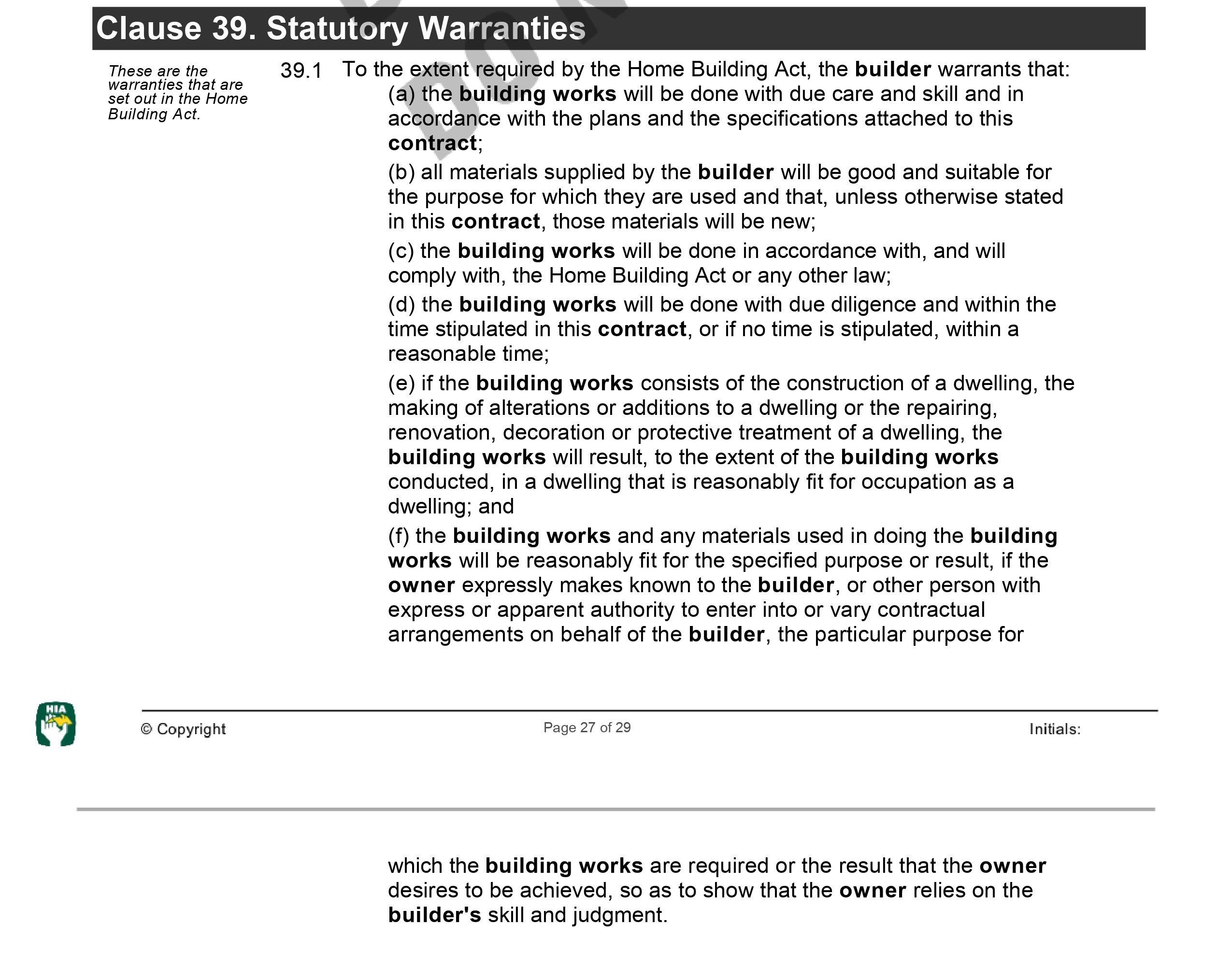Understanding Statutory Warranties
The Home Building Act 1989 (NSW) provides statutory warranties for homeowners in residential building contracts. These warranties require the builder to rectify any defective or incomplete work, and to complete the work in a reasonable timeframe. The statutory warranties last for 6 years for major defects and 2 years for all other defects. Additionally, builders are required to provide homeowners with a certificate of insurance for home warranty insurance to protect them in case the builder dies, disappears, or becomes insolvent. Understanding statutory warranties and their limitations is crucial for homeowners to protect their investment and ensure that their home is built to a satisfactory standard.

Common Issues and Disputes Related to Delayed Building Works
Homeowners can face various issues and disputes related to delayed building works. These may include:
- Defective or incomplete work
- Delays in completing the work within the agreed timeframe
- Use of inferior quality or unsuitable materials
- Non-compliance with building standards and regulations
- Misrepresentations made by the builder about their qualifications or experience
- Failure to provide a certificate of insurance for home warranty insurance
- Poor quality workmanship
- Water damage or leaks
- Structural defects
- Non-compliance with building codes or regulations
- Failure to obtain necessary permits or approvals
- Variation of the work without proper consent or agreement
- Disputes over payment, including non-payment or overcharging.
These issues can result in delays, additional costs, and disputes between the homeowner and the builder. As a homeowner, it is essential to understand your contractual and legal rights and obligations to avoid these issues or resolve them efficiently if they arise.
Statutory Warranties and Contractual Rights
Under the Home Building Act, homeowners have a range of statutory warranties that protect them against defective work or incomplete works. Besides statutory warranties, homeowners also have contractual rights arising from their building contract with their builder. These contractual rights may include specific clauses that provide additional protections for the homeowner. Homeowners should carefully review their building contract to ensure that they fully understand their contractual rights and any additional protections that may be available to them. In the event of a dispute, homeowners can rely on both their statutory warranties and their contractual rights to seek a resolution.
Navigating Delayed Building Works: Legal Advice for Homeowners Under the HIA NSW Lump Sum Contract
Navigating delayed building works under the HIA NSW Lump Sum Contract can be a frustrating and stressful experience for homeowners. Seeking legal advice from a construction lawyer experienced in the field can help homeowners understand their rights and options. It is important for homeowners to carefully review their contract and understand the statutory warranties and their contractual rights. Homeowners should also maintain proper documentation and communication with the builder throughout the construction process. In case of a dispute, homeowners can consider engaging in alternative dispute resolution methods such as mediation or arbitration before taking legal action. Overall, seeking legal advice and taking proactive measures can help homeowners navigate delayed building works and protect their interests under the HIA NSW Lump Sum Contract.


Managing Construction Delays with Home Building App (HBApp)
Navigating construction delays can be challenging. Home Building App (HBApp) serves as an essential resource for homeowners, offering expert guidance and simplified solutions throughout your construction journey.
Key Features of HBApp: Empowering Homeowners in Managing Delays
- Streamlined Communication: HBApp ensures all project-related communications are centralised, reducing misunderstandings and facilitating effective discussions about delays. Learn more about organised communication.
- Task Allocation and Monitoring: Delegate and monitor tasks efficiently, helping you track progress and manage delays, with HBApp’s intuitive task management system. Explore task management features.
- Document Organisation: Keep all project documents, including contracts and correspondences, organised and accessible. This is crucial for managing delayed building works. Discover our document organisation solutions.
Get Expert Construction Contract Review and Advice
Get Your HIA Contract Reviewed Now
Step 1: Simply fill out this form and upload your contract.
Step 2: We’ll review it and return to you with a fixed fee quote.
Minimise construction risks on cost, time, and quality.
Get Home Building Contract Review and Advice now.

Conclusion
In conclusion, homeowners facing delayed building works need to understand their rights under the Home Building Act and their contractual agreement with their builder. It is essential to seek legal advice as early as possible to ensure that their interests are protected. A construction lawyer with expertise in this area can guide homeowners through the process of navigating a claim for statutory warranties, negotiating with the builder, and potentially pursuing legal action. Homeowners should not hesitate to seek legal advice as it can save them from significant financial loss and emotional distress. If you are a homeowner facing issues with delayed building works, it is important to speak with a qualified construction lawyer who can help you understand your legal rights and protect your interests.




